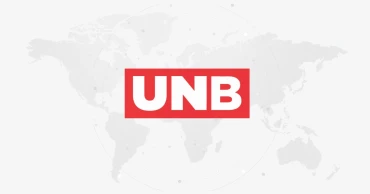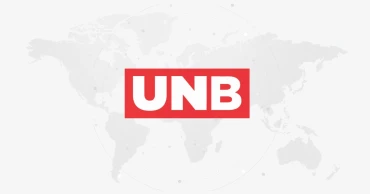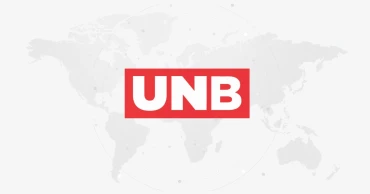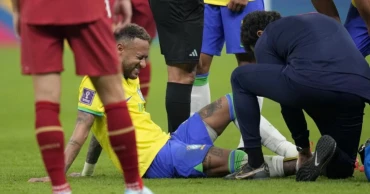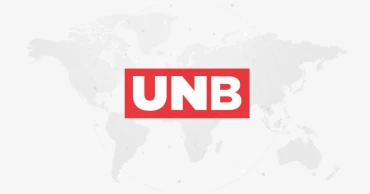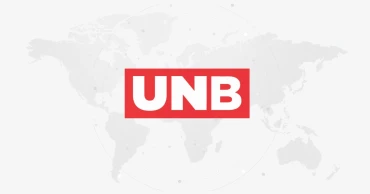Serbia
Serbia's prime minister resigns as anti-corruption protests grow
Serbia’s populist Prime Minister Milos Vucevic resigned Tuesday in an attempt to calm political tensions following weeks of massive anti-corruption protests over the deadly collapse of a concrete canopy.
The canopy collapse in November, which killed 15 people in the northern city of Novi Sad, has become a flashpoint reflecting wider discontent with the increasingly autocratic rule of Serbia’s populist President Aleksandar Vucic.
He has faced accusations of curbing democratic freedoms in Serbia despite formally seeking European Union membership for the troubled Balkan nation.
“It is my appeal for everyone to calm down the passions and return to dialogue,” Vucevic told a news conference announcing his resignation.
Novi Sad Mayor Milan Djuric also will step down on Tuesday, Vucevic said.
Vucevic’s resignation could lead to an early parliamentary election. The resignation must be confirmed by Serbia’s parliament, which has 30 days to choose a new government or call a snap election.
Pro-government media said President Vucic will attend a Cabinet session on Tuesday evening to decide whether a new prime minister-designate will be appointed or an early election called.
Opposition parties have said they would insist on a transitional government that would create conditions for a free and fair election. Vucic's populists have faced accusations of irregularities during past elections.
Serbian farmers support students in Belgrade blockade
Vucevic became the prime minister in April 2024, after the Serbian Progressive Party won most votes in an election marred by tensions.
“They (ruling party) have been in a free fall since the Novi Sad tragedy,” journalist Slobodan Georgiev said on N1 television, adding that Vucic was seeking a “buffer” with the prime minister's resignation.
Vucic in the past had managed to cushion the impact of anti-government street protests, but the current student movement has garnered widespread support from all walks of life, including actors, farmers, lawyers and judges.
On Monday, tens of thousands of people joined striking university students in a 24-hour blockade of a key traffic intersection in the Serbian capital. The students have been protesting for weeks, demanding accountability for the canopy collapse that critics have blamed on rampant government corruption.
In another attempt to defuse tensions, Vucic, Vucevic and Parliament Speaker Ana Brnabic on Monday evening urged dialogue with the students, who have so far rebuffed such invitations.
Vucevic said the immediate cause for his quitting was an attack on a female student in Novi Sad early Tuesday by assailants allegedly from the ruling Serbian Progressive Party. Vucevic said that “whenever it seems there is hope to return to social dialogue, to talk ... it’s like an invisible hand creates a new incident and tensions mount again.”
But the outgoing prime minister also said that the street protests “undoubtedly” have been organized from abroad “with an aim to directly jeopardize Serbia as a state.” Vucevic offered no evidence for his claims that echoed earlier similar statements by Vucic.
“I can never justify or understand many of these protests, blockades of lives, of roads and the freedom of movement of other citizens,” he said.
Serbia’s prosecutors have filed charges against 13 people, including a government minister and several state officials. But the former Construction Minister Goran Vesic has been released from detention, fueling doubts over the investigation’s independence.
1 year ago
Serbian farmers support students in Belgrade blockade
Serbian farmers and striking university students have united to block a major traffic intersection in Belgrade for 24 hours on Monday, escalating their protest against the government, reports AP.
This action follows weeks of demonstrations demanding accountability for a tragic canopy collapse in Novi Sad last November that claimed 15 lives.
Striking students in Serbia tell chief prosecutor to 'fight for law and justice'
Farmers driving tractors and thousands of citizens joined the blockade, which has become a significant challenge to Serbia's populist government, accused of corruption linked to the deadly accident.
Serbian President Aleksandar Vucic, speaking alongside Prime Minister Milos Vucevic and Parliament Speaker Ana Brnabic, called for dialogue with the students, urging them to "lower tensions and start talking to each other."
The students have previously refused to meet with Vucic, arguing that the president does not have constitutional authority to engage in talks with them.
Vucic acknowledged the crisis's economic impact, stating, "Any kind of a crisis poses a serious problem for our economy," and noted that such unrest harms everyone.
The president has faced accusations of limiting democratic freedoms, despite Serbia's formal bid for European Union membership. He also suggested that foreign forces may be behind the student protests in an effort to destabilise his government.
Ready to help Bangladesh, ex-Serbian President tells Dr Yunus
Recent weeks have seen violent incidents at protests, including drivers deliberately driving into crowds, injuring two young women. To prevent further violence, traffic police secured the student blockade on Monday.
At the protest site, which blocks a crucial traffic route, students set up tents and engaged in various activities, such as playing volleyball and sitting on blankets. They also held a 15-minute daily moment of silence at 11:52 a.m., the exact time the canopy collapsed in November.
Many Serbs believe the collapse was caused by poor reconstruction, linked to government corruption. Prosecutors have charged 13 individuals, including a government minister and state officials.
However, doubts have been raised about the investigation’s integrity, as former construction minister Goran Vesic was released from detention. The renovation of Novi Sad’s main railway station, which had been carried out in collaboration with Chinese state companies, has been controversial.
1 year ago
Striking students in Serbia tell chief prosecutor to 'fight for law and justice'
Serbia's striking university students on Wednesday rallied outside the chief prosecutor's office to demand justice over a concrete canopy collapse that killed 15 people last month in the country's north.
More than 1,000 students symbolically left letters on the doorstep of the public prosecutor's office, telling chief prosecutor Zagorka Dolovac that "students expect you to fight for law and justice, without political abuse or corruption.”
Dolovac's office later responded with a statement inviting a student delegation to a meeting.
Serbia's universities have been blockaded for weeks as part of a wider movement demanding accountability over the Nov. 1 tragedy in Novi Sad when a huge concrete construction at the railway station crashed onto the people below.
Russia targets Ukrainian energy infrastructure on Christmas Day
Many in Serbia blame the collapse on widespread corruption and sloppy work on the building renovation, one of a number of questionable infrastructure megaprojects involving Chinese state companies.
Prosecutors have arrested 13 people over the Novi Sad tragedy, including a government minister whose release later fueled public skepticism about the honesty of the investigation.
Striking students have received wide support in Serbia from their professors, farmers, actors and others. Tens of thousands joined a student-led protest in Belgrade on Sunday that also reflected wider discontent with populist President Aleksandar Vucic's rule.
Protesting students on Wednesday carried banners featuring red handprints — a protest symbol telling the authorities they have “blood on their hands.”
In an apparent attempt to defuse the student strikes, Vucic has been advertising what he describes as “favorable” loans for young people to purchase apartments.
The increasingly autocratic Serbian leader has faced accusations of curbing democratic freedoms despite formally pursuing European Union membership for the Balkan nation.
1 year ago
Serbia: 9 migrants found among aluminum rolls in truck
Serbia's customs authorities said Friday they discovered nine migrants hiding among aluminum rolls in a truck headed to Poland from Greece.
Customs officers on Serbia's border with North Macedonia spotted the migrants on Wednesday during a scan that showed human silhouettes in the back of the truck, a statement said.
The migrants were young men from Afghanistan, Pakistan and Syria, the statement added.
Serbia lies at the heart of the so-called Balkan land route that refugees and migrants use to try to reach Western Europe and start new lives there.
Migrants go from Turkey to Greece or Bulgaria, then to North Macedonia and Serbia. From Serbia they move on toward European Union member states Hungary, Croatia or Romania, or they go to Bosnia first and then on to Croatia.
Thousands of people fleeing violence or poverty pass through the Balkan region every year. They often face dangers in the hands of people-smugglers who help them cross borders undetected.
2 years ago
Serbia, Kosovo leaders weigh EU proposals to improve ties
The leaders of Serbia and Kosovo are holding talks on Monday on European Union proposals aimed at ending a long series of political crises and setting the two on the path to better relations and ultimately mutual recognition.
Tensions have simmered between Serbia and its former territory since Kosovo unilaterally broke away in 2008; a move recognized by many Western countries but opposed by Serbia, with the backing of Russia and China.
Recently, those tensions flared over seemingly trivial matters like vehicle license plate formats, or the arrest of an ethnic Serb police officer, triggering renewed concern among Western leaders that a new Balkan conflict might break out just as Russia’s war in Ukraine enters its second year.
At meetings in Brussels, Serbian President Aleksandar Vucic and Kosovo Prime Minister Albin Kurti are expected to discuss ways to put the European proposals into action. Both leaders have already discussed the plan, which hasn't been made public, and EU officials are confident of progress.
A senior EU official said before the talks that “we need to break the vicious circle of crisis.” He said the proposals are “not the end of the road” when it comes to normalizing ties between Belgrade and Pristina, but that given recent tensions, the EU plan is the “maximum achievable at this point.”
The official briefed reporters on the condition that he not be named because of the highly sensitive nature of the meetings. Previous talks between Vucic and Kurti have degenerated into arguments and mutual recrimination, but this time both leaders have already endorsed the proposals “in principle,” he said.
Vucic said Sunday, before the meetings supervised by EU foreign policy chief Josep Borrell, that he’s “ready to work on the concept and implementation of the proposed plan with clearly defined limitations.”
Also Read: Greece plane crash: Cargo aircraft was carrying weapons to Bangladesh : Serbian minister
He didn't specify the “limitations,” but he has repeatedly said that they include the refusal to recognize Kosovo as an independent state as well as agree to it becoming a U.N. member.
The EU has mediated negotiations between Serbia and Kosovo since 2011, but few of the 33 agreements that have been signed were put into action. The EU and the U.S. have pressed for faster progress since Russia launched a full-scale invasion of Ukraine last year.
Earlier this month, hundreds of Serbian nationalists gathered in Belgrade to demand that Vucic reject the EU plan and pull out of the talks.
Shouting “Treason” and carrying banners reading “No surrender,” the right-wing protesters blocked traffic as they gathered near the Serbian presidency building. The protesters are also strongly pro-Russia, and one banner read: “Betrayal of Kosovo is betrayal of Russia!”
In recent months, U.S. and EU envoys have visited Pristina and Belgrade regularly to encourage them to accept the new proposals, and the two leaders met with senior EU representatives on the sidelines of a major security conference in the German city of Munich earlier this month.
3 years ago
Process underway to sign deals with Croatia, Serbia over manpower export: Minister
Expatriates’ Welfare and Overseas Employment Minister Imran Ahmad on Monday said a process continues to sign memorandum of understanding (MoUs) with several European countries including Croatia and Serbia in order to export manpower from Bangladesh.
He said this while addressing a function in the conference room of his ministry here in the city, which was arranged to mark the farewell of 30 workers out of 102 intended for going to Romania through Bangladesh Overseas Employment and Services Ltd (BOESL).
The Minister said the Europe is a potential labuor market for Bangladesh and the rate of labour migration to Europe is constantly increasing.
read more: Manpower export to Malaysia resumes after four-year gap
He said the process of sending workers to Romania and other European countries will continue through BOESL.
The Minister urged the workers who are willing to go abroad to enhance the reputation of the country by being responsible towards the country and paying attention to responsible behaviour and works.
Read more: Recruit more manpower from Bangladesh: President to Sultan of Brunei
Expatriates’ Welfare and Overseas Employment Secretary Dr. Ahmed Munirus Saleheen and other high officials from the ministry, BOESL and the Wage Earners’ Welfare Board were present, said a press release.
3 years ago
FIFA World Cup: Neymar in tears after injury against Serbia
Neymar sat crying on the bench and later left the stadium limping with a swollen right ankle after Brazil’s 2-0 victory over Serbia at the World Cup on Thursday.
Brazil team doctor Rodrigo Lasmar said Neymar sprained his ankle.
“We put ice on it while he was on the bench and then in physiotherapy,” Lasmar said. “There is no test scheduled for now but we will schedule it if needed. He will be under observation. We will know more tomorrow.”
Brazil coach Tite said he was “confident that Neymar will continue playing at the World Cup,” but Lasmar said it was too early to comment on the extent of the injury.
Read more: FIFA World Cup: Richarlison's second-half brace give Brazil 2-0 win over Serbia
Neymar was also injured at the 2014 World Cup. Playing at home in Brazil, his tournament ended with a back injury in the quarterfinals against Colombia when he had to be taken off the field on a stretcher. Brazil ended up losing to Germany 7-1 in the semifinals.
Neymar, who was fouled nine times in the match against Serbia, got injured in the second half and was substituted in the 79th minute. Tite said he stayed on the field for 11 minutes before asking to be replaced.
“He overcame the injury because the team needed him,” Tite said. “I didn’t even see that he had been injured. He just kept playing.”
Neymar was in tears on the bench as doctors began treating him in the final minutes of the game at Lusail Stadium. He pulled his shirt over his head as doctors taped ice around his foot. He went into the locker room limping, and also limped as he left the stadium without speaking to reporters.
“The most important thing for us it to have him at 100% for the next match,” said Brazil striker Richarlison, who scored both goals on Thursday, including one after a buildup started by Neymar. “When I get to the hotel I’m going to go and see how he is doing.”
Neymar was tackled hard a few times during the match and was limping and grimacing before having to leave the field. He was the most fouled player on the field.
Read more: Ronaldo makes history, becomes first male player to score at five World Cups
The 30-year-old Neymar has yet to win a major title with the national team. He helped the “Seleção” win the 2013 Confederations Cup and its first Olympic gold medal at the 2016 Rio de Janeiro Games.
With 75 goals for the national team, he is two shy of Pelé’s scoring record.
3 years ago
FIFA World Cup: Richarlison's second-half brace give Brazil 2-0 win over Serbia
Richarlison scored two goals, the second with a spectacular acrobatic kick, to help Brazil beat Serbia 2-0 Thursday at the World Cup.
In the 73rd minute, the striker used one touch to get the ball up in the air and then spun around and got off the ground before knocking the ball into the net with his right foot.
Brazil had struggled to get past the Serbian defense until Richarlison scored from close range in the 62nd in a buildup that started with Neymar.
Vinícius Júnior assisted on both goals.
Neymar, seeking his first major title with Brazil, stayed at 75 goals for the national team, two shy of Pelé’s scoring record.
Brazil coach Tite started with an attack-minded squad that included four forwards — Neymar, Vinícius Júnior, Raphinha and Richarlison. Attacking midfielder Lucas Paquetá played alongside Casemiro, the lone defensive midfielder.
But Serbia had several players back and was able to keep Brazil from creating many significant opportunities. Neymar tried to control the pace but struggled to find space up front. He, Vinícius Júnior and Raphinha all squandered chances early on.
Brazil’s best chance before Richarlison’s opening goal had been a low long-range shot by Alex Sandro that hit the post in the 60th. Neymar had his best opportunities with a free kick in the 50th and a shot from near the penalty spot in the 55th.
The 30-year-old Neymar arrived to his third World Cup as Brazil’s main attraction. He helped the “Seleção” win the 2013 Confederations Cup and its first Olympic gold medal at the 2016 Rio de Janeiro Games, but has yet to win a major title with the national team.
Read more: Neymar Jr. on the verge of breaking Pele’s goalscoring record
Brazil, trying to win its first World Cup in two decades, is unbeaten in its last 20 opening games, with 17 victories. It has finished first in its group in the last 10 World Cups.
In the other Group G match, Switzerland defeated Cameroon 1-0.
Brazil and Serbia also played in the group stage in 2018, with Brazil also winning 2-0 to reach the next stage at Serbia’s expense.
Since competing as Serbia in 2010, the country has not advanced to the knockout rounds of the World Cup.
Read more: Brazil Team Analysis for 2022 World Cup in Qatar
3 years ago
Serbia keen to invest in food storage industry in Bangladesh: FBCCI
Serbian Foreign Affairs Minister Nikola Selakovic has expressed his country’s interest in investing in the food storage industry of Bangladesh.
The visiting minister expressed his interest during a courtesy call on FBCCI senior vice-president Mostofa Azad Chowdhury Babu on Thursday.
Selakovic said his country's storage companies are one of the best in the world and Bangladesh can also benefit from Serbia's investment in this sector.
“ Serbia has free trade agreements with Europe, the Eurasian Economic Union and Turkey. Bangladesh may benefit by establishing joint ventures and export at zero duty to those free trade countries,” he said.
Read: Govt mulls amnesty to bring back laundered money: Finance Minister
He also expressed interest in signing two agreements on double taxation and investment protection and promotion with the government of Bangladesh to increase bilateral trade.
Serbia is also keen to take skilled and semi-skilled manpower from Bangladesh for construction and agriculture sectors, the minister said.
At the same time, the minister urged Bangladeshi students to go to Serbia to study agricultural engineering as the country provides world best facilities of its kind.
In response, Mostofa Azad Chowdhury said that 30 percent of agricultural products are wasted in Bangladesh every year due to lack of packaging, transportation and storage.
The two sides also agreed to sign a memorandum of understanding between the Serbian Chamber of Commerce and Industry and the FBCCI soon.
Read: Finance minister directs regulators to boost investment in stock market
The meeting also discussed import of sunflower seeds, contract cultivation of wheat in Serbia, and establishment of the Serbian Embassy in Dhaka.
Serbia's assistant minister for bilateral relations Vladimir Maric, Foreign Minister's Adviser Ivan Jaksic, FBCCI Vice-President Habib Ullah Dawn, Director Amzad Hossain, Shomi Kaiser, Dr. Nadia Binte Amin, Abul Kasem Khan and Secretary General Mohammad Mahfuzul Hoque, were, among others, present in the meeting.
3 years ago
Bangladesh, Serbia keen to further strengthen bilateral partnership
To mark the historic occasion of celebrating fifty years of the establishment of diplomatic relations, Bangladesh and Serbia have decided to take up a number of initiatives to further strengthen bilateral partnership.
Serbian Foreign Minister Nikola Selakovic and his Bangladesh counterpart AK Abdul Momen had a meeting at the Foreign Service Academy on Wednesday to discuss a wide range of bilateral and multilateral issues.
Also read:FM urges UNHCR to expedite efforts at Rohingya repatriation to Myanmar
3 years ago



